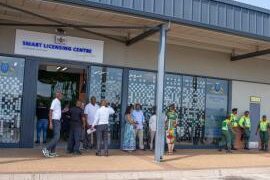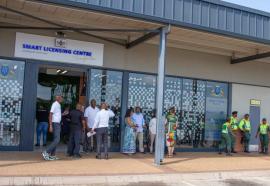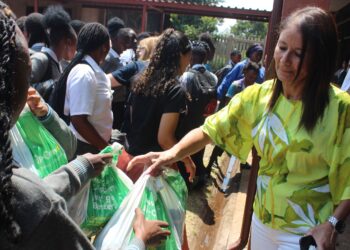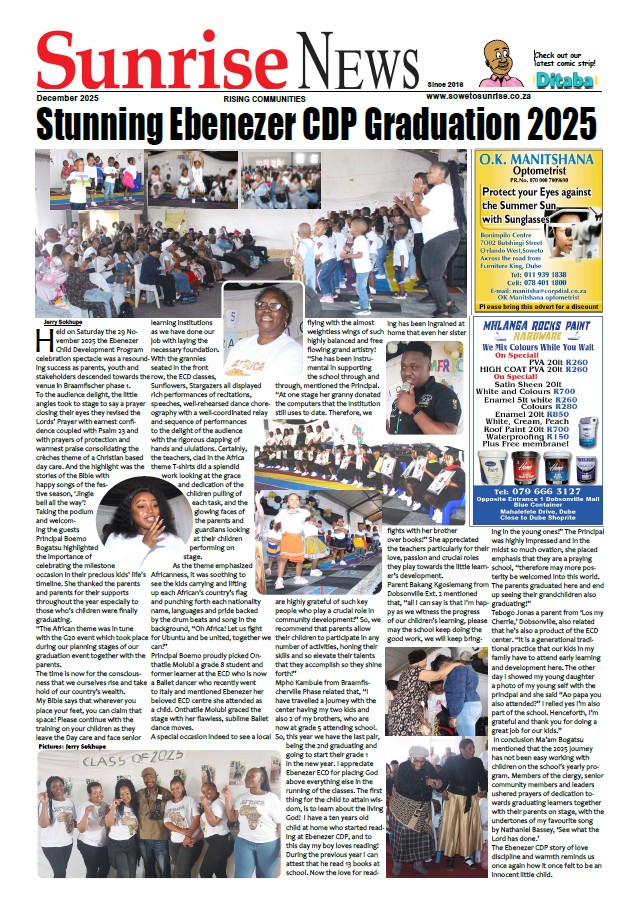The Gauteng Department of Economic Development, in collaboration with the Automotive Industry Development Centre (AIDC), hosted a successful Youth Stakeholder Engagement on Friday, 30 May 2025, at the AIDC facility in Tshwane. The event brought together youth, industry leaders, civil society, labour, and government stakeholders to deliberate on the critical role of young people in shaping the future of South Africa’s automotive industry.
MEC for Finance and Economic Development, Lebogang Maile, delivered the keynote address, emphasising the centrality of the automotive industry in driving economic growth, innovation, and job creation in Gauteng and South Africa. He applauded the sector’s resilience in the face of global and local economic challenges, citing the recent Automotive Business Council report, which revealed a significant 11.9% year-on-year growth in vehicle sales for April 2025.
“The automotive industry is one of South Africa’s industrial policy success stories and it is central to our reindustrialisation strategy,” said MEC Maile. “We must ensure young people are not left behind, but rather positioned at the forefront of this sector’s ongoing transformation.”
The MEC also highlighted the strategic importance of the Tshwane Automotive City (TAC), spearheaded by the AIDC, as a game-changing project that integrates logistics, production, and skills development into a cohesive and competitive ecosystem. This model, he explained, creates jobs while also enhancing South Africa’s export performance and regional trade.
“Young people must not see this industry as closed off. We need their energy, creativity, and skills to help us transition into green automotive technologies and digital innovation. The future of this sector depends on how well we equip and include them,” said Maile.
The AIDC, an implementing agency of the Gauteng Department of Economic Development, has made significant strides in youth development. Its programmes focus on equipping young South Africans with relevant technical skills through apprenticeships, learnerships, and advanced manufacturing training. The AIDC is also promoting township-based economic inclusion through its innovative Township Automotive Hub model, which supports small businesses and informal mechanics with infrastructure, training, and access to markets.
Speaking at the engagement, AIDC CEO Mr Andile Africa reaffirmed the agency’s commitment to youth empowerment. “The AIDC believes that investing in the youth is investing in the sustainability of the sector. Our training facilities and enterprise development programmes are designed to provide young people with the tools they need to succeed, not just as employees, but also as entrepreneurs and industry leaders.”
MEC Maile encouraged youth to take advantage of bursaries, training programmes, and mentorship opportunities available within the sector. He also called on the private sector to strengthen partnerships with government and civil society in tackling youth unemployment and ensuring inclusive growth.
As South Africa prepares for a just transition towards electric mobility, green manufacturing, and smart technologies, Gauteng is positioning itself as a continental leader in this new era. Today’s engagement underscored the importance of collective action in unlocking the full potential of the youth and ensuring that the automotive sector remains a key contributor to sustainable and inclusive economic growth.
Gauteng Department of Economic Development
Soweto Sunrise News

































